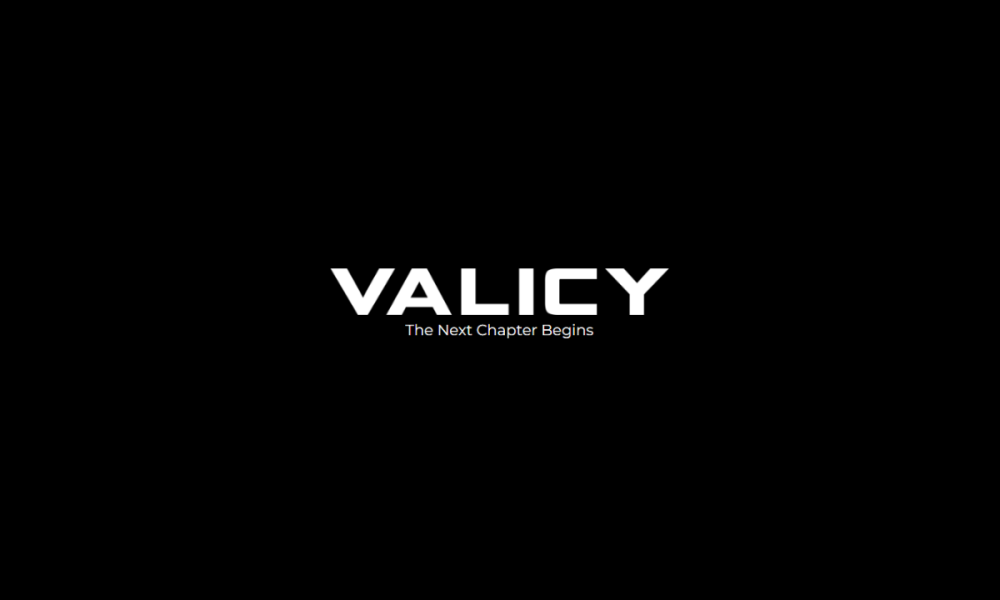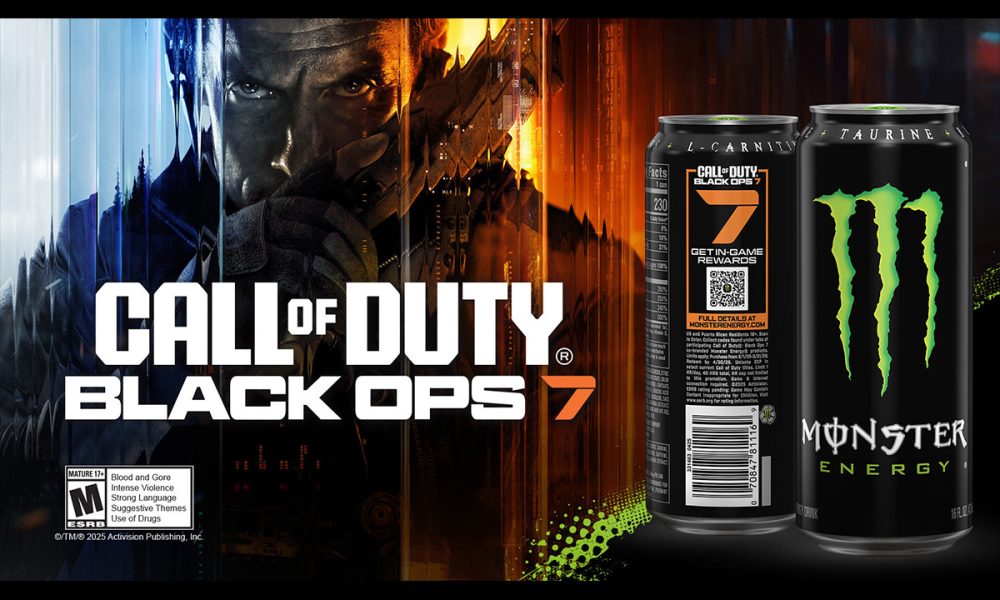

gaming
GameRefinery July Market review: Large-scale content updates in major mobile titles
Several major mobile game titles saw music-themed content and events added. The most significant was PUBG: Mobile’s first in-game concert featuring K-pop stars, Blackpink. It brought an immense spike in revenue. This occurred because of a Cheering event where players could purchase or collect Cheer points through daily tasks, and once they had enough, they could purchase Blackpink outfits and receive a special title.
Diablo Immortal and Apex Legends: Mobile had their first significant updates in the US market. Diablo Immortal introduced the non-recurring Hungering Moon event, a new Battle Pass season, two new raid bosses, and a free class change mechanic. Apex Legends: Mobile announced a new season that added a new map from the console/PC version, an exclusive character, events, and cosmetics.
Additional updates in the US market include Brawl Stars implementing new skins designed by K-pop stars, BTS. Cookie Run: Kingdom collaborated with Disney for a Disney-themed event, and Genshin Impact re-implemented its Summer Fantasia event.
In China, Harry Potter: Magic Awakened introduced a 4v4 co-op Battle Royale game mode and a new permanent boost system. Ace Racer partnered with the Hainan Island province for its first-anniversary event that featured real-life money prizes and in-game rewards.
Diablo Immortal ranks within the top 2 grossing in China. League of Legends esports manager game Ying Xiong Lian Meng Dian Jing Jing Li ranks within the top 5 grossing and is perhaps the first mobile esports manager.
Music and summer-themed updates were especially prevalent in the Japanese market. Puzzle & Dragons added a BGM collecting system. Uma Musume Pretty Derby, Idolmaster Cinderella Girls Starlight Stage, and One Piece Treasure Cruise all held summer events and gachas.
Despite an apparently lacklustre launch in the Japanese market, the 4X strategy game Ant Legion enjoyed a spike in revenue in July and currently ranks among the top 110 grossing.
If you’d like more updates like this, you can find the bulletin on the GameRefinery website.
gaming
Valicy Gaming Launches as New Brand in Land-Based Gaming, Evolving from Grover Gaming

The former Founder and CEO of Grover Gaming has officially launched a new brand in land-based gaming. Named by combining the names of his daughters, Valicy Gaming was unveiled during a recent company launch party held in Greenville, North Carolina.
Evolving from Grover Gaming—which was recently sold to Light & Wonder for a total consideration of $1.05 billion —Valicy will now focus on becoming a major manufacturer in land-based gaming across North America. Retaining a majority of the employees from the acquisition, Valicy will continue forward with a veteran team that will have a sharper focus on game development and hardware design.
Despite the name change, Valicy continues under the same experienced executive leadership team and remains dedicated to providing best-in-class customer service and technical support—qualities customers have come to depend on. The company’s values, represented by its CARE triangle—People, Company, and Work—are deeply rooted in its culture and will remain central to its mission moving forward.
The public debut of the Valicy brand will take place at the Global Gaming Expo (G2E) in Las Vegas, October 6–9, at the Venetian Expo, Booth #1623, where the team will showcase its new identity and game offerings to casino partners and operators from across the industry.
“This is an exciting time for our teams,” said Garrett Blackwelder, Founder and CEO of Valicy. “We have the opportunity to do big things in new markets, which gives us energy and enthusiasm. As we grow Valicy, we will focus on relationships, excellence, and innovation.”
The post Valicy Gaming Launches as New Brand in Land-Based Gaming, Evolving from Grover Gaming appeared first on Gaming and Gambling Industry in the Americas.
Call of Duty
Monster Energy and Call of Duty Unite Again with Exclusive In-Game Rewards and Expanded Program Timing

Monster Energy is teaming up once again with Call of Duty to deliver bonus in-game rewards, bonus 2XP and an expanded promotional window that gives fans even more opportunities to fuel up and power their gameplay.
Gamers and Monster fans can start collecting codes to stockpile rewards ahead of the highly anticipated release of Call of Duty: Black Ops 7 on November 14. Following the record-breaking success of the last year’s program – the 2025 campaign has been extended and will run through March 31, 2026, with code redemption available until April 30, 2026.
Players who purchase specially marked Call of Duty cans of Monster Energy, Monster Zero Sugar, or Monster Zero Ultra can find a unique code under the tab and redeem it online at callofduty.monsterenergy.com. Every can unlocks bonus in-game items and double experience points.
2025 in-game rewards include:
• 1 Can = “Energy Flash” Large Decal + 15 min 2XP
• 2 Cans = “Peacekeeper MK1 – Hyper Green” Weapon Blueprint + 15 min 2XP
• 3 Cans = “Green Fury” Operator Skin + 15 min 2XP
• 4 Cans = “VS Recon – Green Thunder” Weapon Blueprint + 15 min 2XP
• 5 Cans = “Daylight Ripper” Operator Skin Recolor + 15 min 2XP
In addition, select retailers will feature specialty bonus in-game content such as Emblems, Charms, Weapon Stickers, and Dual 2XP.
And as an added bonus, fans who create an account on callofduty.monsterenergy.com before October 31 will score a Black Ops 6 in-game skin – no purchase required.
“Monster Energy is built on fueling competitive spirit and our collaboration with Call of Duty continues to push that to new levels. With expanded timing, bonus rewards and the unmatched value of Double XP in every can, this year’s program is our biggest and most exciting yet,” said Dan McHugh, Global Chief Marketing Officer at Monster Energy.
“We’re proud to continue building on the success of our partnership with Monster Energy. Monster is the go-to fuel of gamers and they are going to drink up these exciting in-game rewards,” added Cody Neal, Associate Director of Global Partnerships, Call of Duty.
The limited-edition Monster Energy Call of Duty cans are available in 16oz in Original Monster Energy, Monster Zero Sugar and Monster Zero Ultra. Special 4, 12, and 15 can Monster Energy Call of Duty multipacks are on shelves now.
The post Monster Energy and Call of Duty Unite Again with Exclusive In-Game Rewards and Expanded Program Timing appeared first on Gaming and Gambling Industry in the Americas.
gaming
Gamescom 2025: New Records and Important Impetus for the Games Industry in Germany and Worldwide

Gamescom 2025 ended with numerous new records and strong momentum for the games industry in Germany and worldwide. Records were once again set, particularly in terms of key figures such as internationality (70% of visitors from abroad, exhibitors from 72 countries), digital reach (more than 630 million views worldwide by 23 August evening alone), exhibition space (233,000 square metres) and the number of exhibitors (1568). On site, 357,000 fans visited the world’s largest festival of games culture. The number of trade visitors rose to 34,000, with a particularly strong increase in participants from the US, China, Canada and Japan.
“This year, gamescom 2025 is sending out a particularly positive signal. After two challenging years for the games industry, you could really feel the mood improving this year. The new record figures underline not only the global appeal of gamescom, but also the upward trend in the entire games industry. gamescom 2025 is also a milestone for the German games industry: political support for the additional tax-based games funding at gamescom was stronger than ever – from both the federal and the state level alike. This creates hope that progress will be made quickly. But there were also positive signals on many other political topics, whether for e-sports from Federal Minister Bär at the political opening or from Federal Minister for Family Affairs Karin Prien, who was just as convinced of the important work of the USK in the protection of minors as she was of the enormous potential of games for the education sector,” said Felix Falk, Managing Director of game – The German Games Industry Association, the co-organiser of gamescom.
Political interest in gamescom 2025 was greater than ever before. In total, over 600 politicians came to Cologne to see for themselves the current developments in the games industry and the enormous economic, cultural and technological potential of games. Whether from the federal states, the federal government or the EU, the political guests came from all levels. In addition, a particularly large number of international delegations travelled to gamescom, for example from this year’s gamescom partner country Thailand as well as from Brazil, Indonesia and India.
Gamescom 2026 will take place from 26 to 30 August. It will open on 25 August 2026 with the gamescom Opening Night Live.
The post Gamescom 2025: New Records and Important Impetus for the Games Industry in Germany and Worldwide appeared first on European Gaming Industry News.
-

 gaming3 years ago
gaming3 years agoODIN by 4Players: Immersive, state-of-the-art in-game audio launches into the next generation of gaming
-
EEG iGaming Directory9 years ago
iSoftBet continues to grow with new release Forest Mania
-
News8 years ago
Softbroke collaborates with Asia Live Tech for the expansion of the service line in the igaming market
-
News7 years ago
Super Bowl LIII: NFL Fans Can Bet on the #1 Sportsbook Review Site Betting-Super-Bowl.com, Providing Free Unbiased and Trusted News, Picks and Predictions
-
iGaming Industry8 years ago
Rick Meitzler appointed to the Indian Gaming Magazine Advisory Board for 2018
-
News7 years ago
REVEALED: Top eSports players set to earn $3.2 million in 2019
-
iGaming Industry8 years ago
French Senator raises Loot Boxes to France’s Gambling Regulator
-
News7 years ago
Exclusive Interview with Miklos Handa (Founder of the email marketing solutions, “MailMike.net”), speaker at Vienna International Gaming Expo 2018







